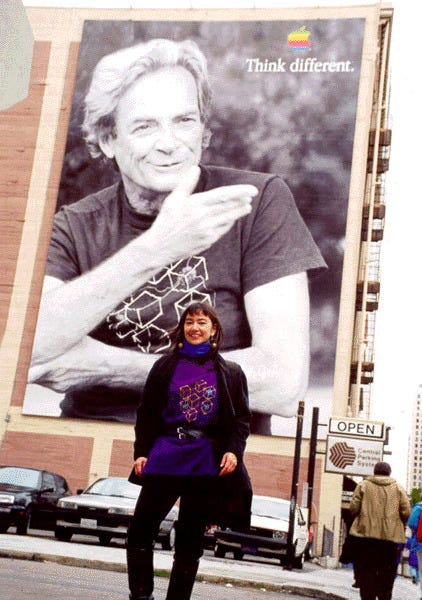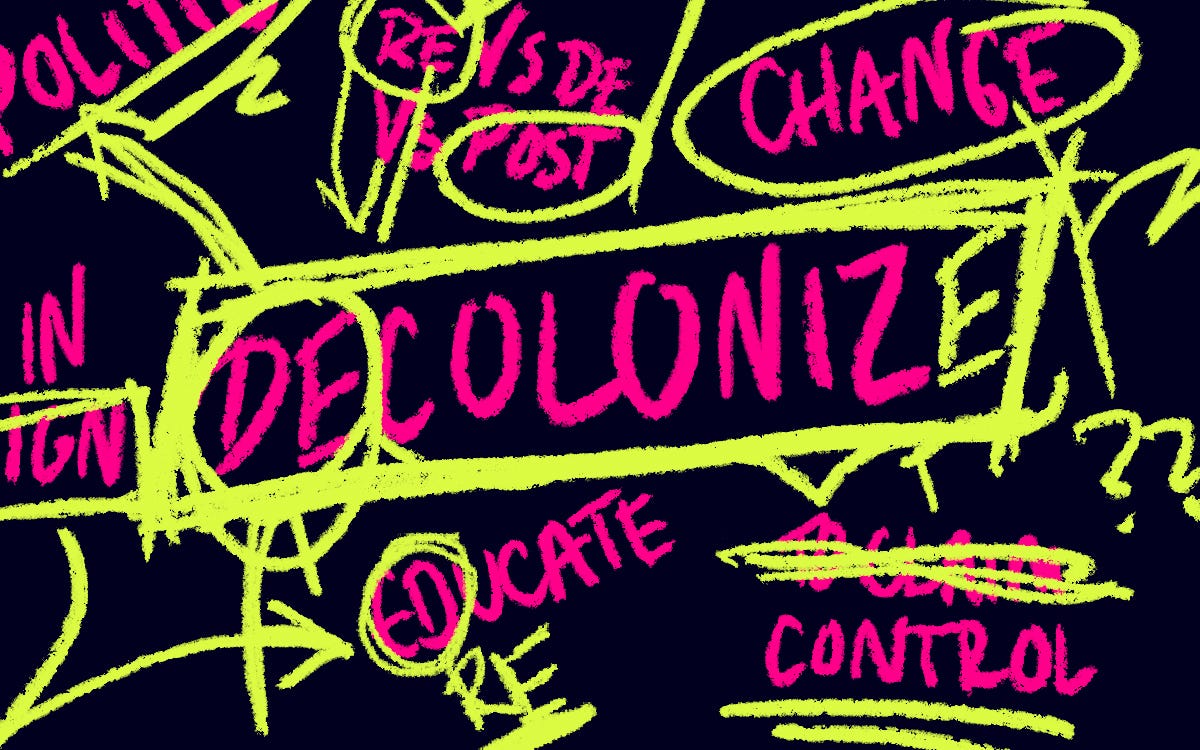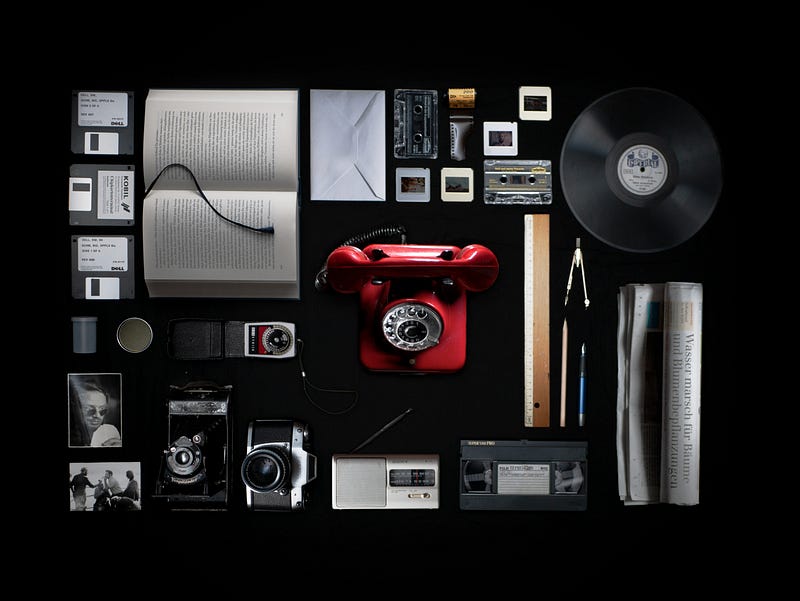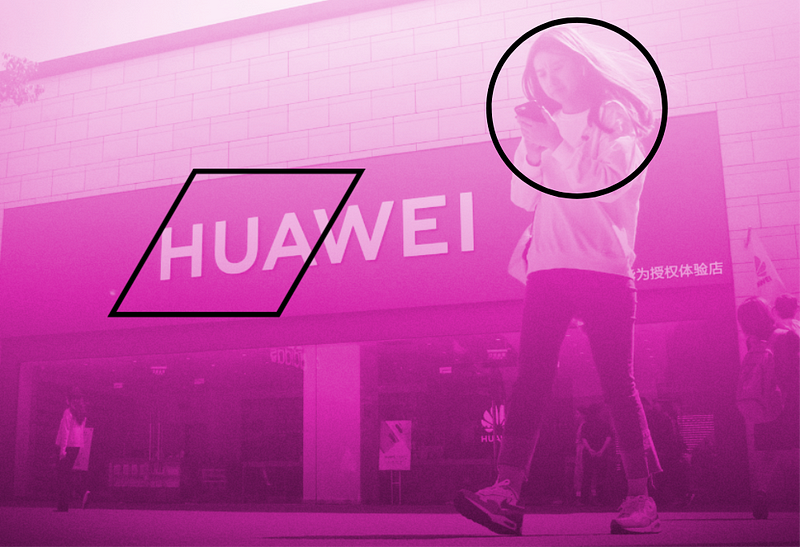How the people who built Slack use it without going bonkers

If there’s one technology that embodies the unreasonable demands of the always-on work culture that pervades so many companies today, it’s Slack. The group-chat app can make users feel tethered to their devices, often at the expense of doing more important tasks. Over 10 million people log on to Slack every day. Slack’s own employees, of course, use Slack—they use it a lot. And if distraction is caused by technology, then they should surely suffer the consequences. Surprisingly, according to media reports and Slack employees I spoke with, the company doesn’t have that problem.
Source: Fast Company
What Does ‘Posthuman Design’ Actually Mean?

According to design educator Anastasiia Raina, it’s not too early to begin considering what the roles of designers might be in a future where tasks like layout and production are completely automated. What would “human-centered design” mean in a future where our client-partners are robots, or even non-human lifeforms?
This is a question Raina poses in her new undergraduate course at RISD titled Design in the Posthuman Age. The curriculum follows the lines of inquiry generated by designers and futurists before her — theorists like Cyborg Manifesto’s Donna Haraway or Dunne & Raby, authors of Speculative Everything. To Raina, Posthuman Design is not so much an aesthetic as a design methodology with roots in Postmodernism.
Source: AIGA Eye on Design – Medium
The Female Supercomputer Designer Who Inspired Steve Jobs

It started with a T-shirt.
The product designer and mechanical engineer Tamiko Thiel was working for the Cambridge, Massachusetts, company Thinking Machines. She and her colleagues were building a supercomputer that proposed a radical new concept. Instead of using one giant processor to crunch large amounts of data, they were going to use thousands of processors that would tackle little parts of the data-crunching one by one. It was the early 1980s, and Thinking Machines was trying to build an artificially intelligent machine based on the human brain. As the project’s lead designer, Thiel was charged with the question: What should this new kind of technology look like?
Source: Fast Company
What Does It Mean to Decolonize Design?

The work designers make is inspired by taste, and taste is often derived from what we’re exposed to during our upbringing. But design values and history is taught through a canon; that accepted pantheon of work by predominantly European and American male designers that sets the basis for what is deemed “good” or “bad.” The authority of the canon has undermined the work produced by non-Western cultures and those from poorer backgrounds so that Ghanaian textiles, for example, get cast as craft rather than design. Classifying traditional craft as different from modern design deems the histories and practices of design from many cultures inferior. We should aim to eliminate the false distinctions between craft and design, in order to recognize all culturally important forms of making. Design thinking rhetoric is similarly exclusive: To frame design thinking as a progressive narrative of global salvation ignores alternative ways of knowing.
Source: AIGA Eye on Design – Medium
In Stores, Secret Bluetooth Surveillance Tracks Your Every Move
![]()
Imagine you are shopping in your favorite grocery store. As you approach the dairy aisle, you are sent a push notification in your phone: “10 percent off your favorite yogurt! Click here to redeem your coupon.” You considered buying yogurt on your last trip to the store, but you decided against it. How did your phone know? Your smartphone was tracking you. The grocery store got your location data and paid a shadowy group of marketers to use that information to target you with ads. Recent reports have noted how companies use data gathered from cell towers, ambient Wi-Fi, and GPS. But the location data industry has a much more precise, and unobtrusive, tool: Bluetooth beacons.
Source: The New York Times
Wade In The Water: African American Sacred Music Traditions

Wade in the Water is a 26-part series, originally released in 1994, that celebrates African American sacred music and traditions. When it first aired on NPR member stations, the world was different. Many of the voices featured in the series were alive, and were generous with their support. Today, some of those voices have been stilled. But this series, documenting African American sacred music traditions spanning more than 200 years, remains vital because of them.
Listen to the episodes on NPR.org
Source: NPR
How Tech Redefined the Experience of Culture
Video games and social media require human users to enter into a procedural loop known as flow
While there are no universals in media culture today, there are many qualities worth exploring, because they are shared by many communities or because they are compelling remediations of the age of modernism. One of these is procedurality. Popular modernist writers today claim that this is the essence of the computer: its procedures (algorithms, programs) allow it to interact with other machines and human users in increasingly complex and creative ways. Video games and social media are procedural: they require human users to enter into a procedural loop that both constrains and empowers them. Procedurality is itself the latest version of mechanization, which has been a key condition of society and the economy since the Industrial Revolution. While modernism was vitally concerned with the cultural meaning of mechanical and power technologies in the 20th century, today’s media culture is exploring how far procedurality and simulation can penetrate into and redefine creative expression as well as our politics and everyday lives.
Source: Medium, OneZero
Google Chrome has become surveillance software. It’s time to switch.
Our latest privacy experiment found Chrome ushered more than 11,000 tracker cookies into our browser — in a single week. Here’s why Firefox is better.
Source: The Washington Post
The Classical Music Market: Streaming’s Next Genre?
Classical music has long been viewed by many as a rarified genre that stands apart from other forms of music. While there is clearly something in that, something new is happening to the classical market: streaming is opening up a new, more diverse base of fans. Many of these are finding new entry points to classical music, such as hearing piano concertos on Relaxing Piano playlists. These new audiences bring with them new expectations about what classical music listening should be like and they present a major new opportunity for the classical market.
Source: Music Industry Blog
Everything You Wanted to Know About Gen Z (But Were Afraid to Ask)

Think you know Generation Z? We wanted to set aside trite stereotypes about the streaming generation—yes, plenty of them have in fact seen or even own a record player—and truly get to know them on a global scale. So we commissioned our Culture Next Trends report, in partnership with research agency Culture Co-Op. We found an empowered, multinational, cross-cultural, socially aware, and informed group of 15- to 24-year-olds who speak their minds.
Source: Spotify
Facial Recognition Has a Blind Spot

According to the Electronic Frontier Foundation, a nonprofit organization defending civil liberties in the digital world, facial recognition software may be prone to error. It’s specifically worse when identifying people of color, women, and younger groups. If the software reports a “false negative,” it will not be able to match a person’s face at all. A “false positive” may identify this person as someone else. And for law enforcement, this can pose quite a problem. Since 2013, San Diego police officers could stop to take photographs of a person of interest to run their face through Tactical Identification System (TACIDS). That photograph could then be analyzed against more than a million other booking shots.
Source: Zora on Medium
AI Generated Audiobooks from DeepZen
Synthesized voices like those used by Siri and Alexa are fine for telling us the day’s weather forecast or how many minutes remain on a cooking timer, but would you really want their flat, monotonous tones reading you audiobooks? Probably not, which is why most of us turn to human-voiced services like Audible to get our audiobook fix. Human voice actors might not get the nod for too much longer, however, due to to the pioneering work of a London-based startup called DeepZen.
Source: Digital Trends
Facebook moderators break their NDAs to expose desperate working conditions

At Facebook’s worst-performing content moderation site in North America, one contractor has died, and others say they fear for their lives
Source: The Verge
Must Hear TV? NBCUniversal uses “commercial innovations” to cut through the attention economy

At this year’s Cannes Lions, NBCUniversal presented its latest and updated offerings for brands to integrate with their global platforms, including Picture-in-Picture 2.0, connecting interactive or AR elements on one screen with a commercial on another screen; “Must Hear” TV, audio cues that play as a program fades to commercial and are meant to hold the viewer’s attention; AdSmart Context, an AI powered platform that combs through movies and TV shows to offer targeted ad options; and Shoppable TV, a feature that allows viewers to shop what they see on TV through a QR code on their mobile device.
Source: Fast Company
The Future Of Mobile Web Design: Video Game Design And Storytelling
As attention spans shorten and visitors just want to get to the good stuff on a website, designers have to get more creative in how they communicate their website’s “story.”
Source: Smashing Magazine
Facebook announces Libra cryptocurrency: All you need to know
Facebook has finally revealed the details of its cryptocurrency, Libra, which will let you buy things or send money to people with nearly zero fees. You’ll pseudonymously buy or cash out your Libra online or at local exchange points like grocery stores, and spend it using interoperable third-party wallet apps or Facebook’s own Calibra wallet that will be built into WhatsApp, Messenger and its own app. Today Facebook released its white paper explaining Libra and its testnet for working out the kinks of its blockchain system before a public launch in the first half of 2020.
Source: TechCrunch
Artificial Intelligence is Changing the Workplace for Gen Z Workers
Some 49% of workers aged 16–24 are at risk of losing their jobs to artificial intelligence, according to the Brookings Institution. This group is the most vulnerable of all demographics, with more than 70% of their current skills deemed automatable.
Source: Medium
For Hire

When the class of 2018 graduated from college, they were the first of a new generation — Generation Z — to join the workforce. They watched their parents lose their jobs a decade earlier and fall into debt and worry about whether they’ll be able to retire. They’ve seen the rise of part-time work, the decline of well-paying entry-level jobs, and the continued shrinking of once-stable career options. Although the economy has recovered, for many graduates, financial security still feels unattainable. Here, teachers, students, job-seekers, parents, and résumé-embellishers reveal what they think it now takes to earn a living.
Source: The California Sunday Magazine
Huawei Shows the Chinese Internet will Win
The Instagram Aesthetic Is Over

Over the past year, “Instagram vs reality” photos have grown in popularity as influencers attempt to make themselves seem more accessible. Earlier this month at Beautycon, a beauty festival in New York, Instagram stars spoke about moving away from ring lights and toward showing off their faces in sunlight. As the public becomes more aware of the prevalence of sponsored posts, beauty influencers are abandoning branded shots for ones that show off their “empties” (empty bottles of product they actually use). A growing number of accounts are dedicated to calling out the various cosmetic procedures celebrities and influencers have had. Influencers have also been actively speaking out themselves about burnout, mental health, and the stress that comes with maintaining perfection.
Source – The Atlantic
Anchor is Spotify’s best bet to beat Apple for control of your ears
Since officially launching in 2016, Anchor has become the number-one podcast platform in the world. The company’s mission to “democratize audio” has led it to powering more than 15% of all podcasts on the market, according to podcast analytics company Chartable. Anchor has also tripled the number of podcasts that make money through advertising since it launched Anchor Sponsorships last year. So it’s little wonder how Anchor caught Spotify’s eye.
Source: Fast Company
What Should the Leadership of YouTube Do?

CEO Susan Wojcicki and YouTube leadership must decide how to balance growth goals with criticism for posting controversial—but popular—videos.
Apple Cracks Down on Apps That Fight iPhone Addiction
Last year, with much fanfare, the tech giant unveiled a screen-time tracker of its own. Then it quietly began purging competitors from its store.
Source: Apple Cracks Down on Apps That Fight iPhone Addiction – The New York Times
Poor People’s Privacy Can’t Be an Afterthought
When someone who is living paycheck to paycheck falls victim to an online fraud or a breach, the cascade of repercussions can be devastating.
Source: Opinion | Poor People’s Privacy Can’t Be an Afterthought – The New York Times
Sri Lanka Shut Down Social Media. My First Thought Was ‘Good.’
As a tech journalist, I’m ashamed to admit it. But this is how bad the situation has gotten.
Source: Opinion | Sri Lanka Shut Down Social Media. My First Thought Was ‘Good.’ – The New York Times
Apple Arcade Is Bucking a Video Game Streaming Trend
As Google goes big, why is Apple going mobile?
Source: Apple Arcade Is Bucking a Video Game Streaming Trend
As Pinterest IPOs, its coverage is often pretty sexist
Rather than treating its women-dominated audience as an advantage that has led to solid growth, much of the reporting has framed it as rather off-putting.
Source: As Pinterest IPOs, its coverage is often pretty sexist — Quartzy
Facebook stored millions of Instagram passwords unencrypted
A Facebook spokesperson pointed Recode to the update and reiterated that “there is no evidence of abuse or misuse of these passwords.” But the timing of the update — again, during the release of Mueller’s report — doesn’t convey the message that Facebook cares strongly that users are aware of this issue. Facebook is under investigation by numerous government agencies, including the FTC and the DOJ, for its data collection and privacy practices. It’s unclear if issues like unencrypted password storage could play a role in those investigations, but it’s not a good look regardless for a company that is already struggling mightily with user trust.
Source: Facebook stored millions of Instagram passwords unencrypted – Recode
As millions of dollars pour in, esports teams offer varying visions of the future
While some teams fashion themselves after traditional sports franchises, other are thinking much bigger than wins and losses, focusing on content creation and even apparel as valuations continue to spiral higher.
Snapchat Has Created the Next Evolution in Photography
The company’s Landmarkers feature seamlessly melds the real and the imagined
Source: Snapchat Has Created the Next Evolution in Photography
‘A more sophisticated influencer strategy’: Publishers are building teams to recruit ‘expert networks’
News and business publishers are hiring people to help identify and cultivate influential people that can help the publishers create and distribute content.
Disney’s streaming service costs $7 a month, launches November 12
Disney+ will launch in the US on November 12, for $7 a month. It will have a very large library of old Disney movies and TV shows — crucially, including titles from its Marvel, Pixar, and Star Wars catalog — along with new movies and series made exclusively for the streaming service. It won’t have any ads. And it will allow subscribers to download all of that stuff, and watch it offline, whenever they want.
Source: Disney’s streaming service costs $7 a month, launches November 12 – Recode
A new age of Instagram look-alike celebrity apps is here
350+ influencers with a collective audience of 3.5 billion people are flocking to a platform called Escapex, which gives them their own apps. It’s part of the next wave of social media focused on smaller, more private groups.
Source: A new age of Instagram look-alike celebrity apps is here
To stop copycats, Snapchat shares itself
The “Camera company” corrected course and took back control of its destiny this week at its first ever Snap Partner Summit in its hometown of Los Angeles. Now it’s a camera platform thanks to Snap Kit. Its new Story Kit will implant Snapchat Stories into other apps later this year. They can display a more traditional carousel of your friends’ Stories, or lace them into their app in a custom format. Houseparty’s Stories carousel shares what your buddies are up to outside of the group video chat app. Tinder will let you show off your Snapchat Story alongside your photos to seduce potential matches. But the camera stays inside Snapchat, with new options to share out to these App Stories.
Source: To stop copycats, Snapchat shares itself | TechCrunch
Apple Music Now Has More Paid U.S. Subscribers Than Spotify
Spotify still has more overall listeners
Source: Apple Music Now Has More Paid U.S. Subscribers Than Spotify: Report – Pitchfork
Looking for a new product? You probably searched Amazon
Google has the biggest reach of any digital property, and the majority of all US search queries start there. But product searches are switching things up as several surveys point to Amazon as the leading place to research new items.
Source: Looking for a new product? You probably searched Amazon – eMarketer Trends, Forecasts & Statistics
How Facebook Grew Too Big to Handle
The growth team, however, is unlikely to transform how Facebook fundamentally works. It won’t change the advertising business, which depends on garnering more of people’s attention than its rivals, and using data to target them. It is not dramatically changing the algorithms behind the newsfeed to prioritise in-depth thinking, abandoning the “like” button, or ceasing from sending notifications that pull people back. People You May Know still dredges users’ address books, Facebook still collects information about you as you travel around the web, and its methods to obtain European users’ consent under the new privacy rules are being challenged by privacy activists.
Source: How Facebook Grew Too Big to Handle – Above the Fold – Medium
DJs of the Future Don’t Spin Records—They Write Code
“Live-coding” parties are the latest phenomenon in underground electronic music culture.
Source: DJs of the Future Don’t Spin Records—They Write Code | WIRED
Facebook vs. Apple is tech’s next big rivalry.
The big question after CEO Mark Zuckerberg announced Facebook’s “pivot to privacy” was whether the company was really sincere about guarding users’ personal data. (The consensus among critics: probably not as serious as you might hope.)
What does seem sincere, however, is Zuckerberg’s newfound commitment to messaging. He wants Facebook to dominate private online communication to the same degree that it dominates what we call social networking today.
The Incredible Shrinking Apple
In its gilded middle age, Apple is turning into something like a digital athleisure brand, stamping out countless upscale accessories for customers who love its one big thing, a company that has lost sight of the universe and is content merely to put a ding in your pocketbook.
Source: Opinion | The Incredible Shrinking Apple – The New York Times



















